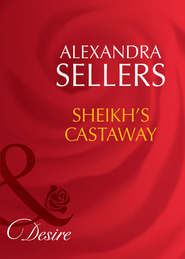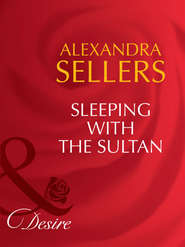По всем вопросам обращайтесь на: info@litportal.ru
(©) 2003-2024.
✖
The Solitary Sheikh
Автор
Год написания книги
2018
Настройки чтения
Размер шрифта
Высота строк
Поля
When his sons were eighteen years old, the sheikh knew that he was facing death. As he lay dying, he saw each of his young wives in turn. To each of them again he promised that her son would inherit. Then he saw his three sons together, and on them he laid his last command. Then, last of all, he saw the wife and companion of his life, with whom he had seen such happiness and such sorrow. To her willing care he committed his young wives and their sons, with the assistance of his vizier, Nizam al Mulk, whom he appointed Regent jointly with her.
When he died the old sheikh’s will was revealed: the kingdom was to be divided into three principalities. Each of his sons inherited one principality and its palace. In addittion, they each inherited one of the ancient Signs of Kingship.
It was the will of their father that they should consult the Grand Vizier Nizam al Mulk for as long as he lived, and appoint another mutual Grand Vizier upon his death, so that none would have partisan advice in the last resort.
Their father’s last command had been this: that his sons should never take up arms against each other or any of their descendants, and that his sons and their descendants should always come to each other’s aid in times of trouble. The sheikh’s dying curse would be upon the head of any who violated this command, and upon his descendants for seven generations.
So the three princes grew to maturity under the eye of the old queen and the vizier, who did their best to prepare the princes for the future. When they reached the age of twenty-five, they came into their inheritance. Then each prince took his own Sign of Kingship and departed to his own palace and his own kingdom, where they lived in peace and accord with one another, as their father had commanded.
One
A black stallion, its tail tossing, galloped over the desert. Its hooves thundered against the hard sand, sending notice of its presence for miles on the silent air. His sweat-glossed sable coat glistened, and gold threads in the embroidered saddlecloth and gold studs in the black bridle were picked out by the rays of the early-morning sun just rising over the rugged white mountains in the distance.
The tall, straight figure of the rider on its back seemed one with the graceful horse as the beast pounded towards a rushing, roaring river. The man’s hair, as black as the stallion’s pelt, waved thickly back from a high forehead, stirred by the wind of their speed. His slim, broad-shouldered body moved in rhythm with the horse as his knees urged it faster and faster, until it seemed that the rider intended to jump the river that now cut across the horse’s path.
The feat would be impossible over the broad, wild torrent. Yet the man urged the horse on towards the wild rush of water, and the horse obeyed. At the last moment, just when it seemed as if its only choice was to dash itself and its rider into the churning waters, he pulled up. The horse reared and snorted; his forelegs danced on air and came to rest a few inches from the edge.
On closer view, it could be seen that both the man’s hair and the horse’s mane were not completely black, but were threaded with strands of silver. The man’s broad, intelligent forehead was pulled into a frown over deep green, troubled eyes.
They paused there, horse and rider, while the man scanned the horizon and the horse stamped and snorted nervously at the noisy river. The frowning eyes seemed to take no pleasure from the sight of the rugged expanse of desert turned golden by the rising sun, nor the vigorous blue-black of the chilly river that rushed by at his horse’s feet, nor the ferocious white-topped mountains in the distance. His small pointed beard and, moustache neatly framed a once-generous mouth that now seemed twisted with sorrow and bitterness. His eyes gazed across the river down towards the ocean, which he knew was there, in the distance, invisible, indistinguishable from the sky.
His brother’s land. The river marked the boundary of the land his father had bequeathed to him. Everything he saw on the other side, including the miles of distant shoreline, belonged to one of his brothers. If he turned to ride west he would, after many miles, come to the border he shared with his second brother.
His brothers. He had no brothers now. His father and mother were dead, his wife was dead, his brothers were lost to him. What did he have left in the world? A land of desert and mountain, much of it inhospitable, and even so, his right to rule over it was disputed by a fool who would stop at nothing to gain power. Two young daughters, whom he scarcely knew and could not love.
He did not love anyone, he realized with the curious enlightenment that recognition of the obvious sometimes brings. He had loved his father, but his father was dead, and had betrayed him in death, leaving him this inhospitable land. If he had ever loved his mother, she had killed that love by her ignorant ambition for him. She had wanted him to be king, without ever thinking of his happiness, and she had destroyed all chance of happiness for him when she had forced him to marry a woman he had found it impossible to love. And her ambitions had backfired when, long after his father had died, leaving him the least share of the kingdom, his wife had borne only daughters.
He had once loved his brothers, but they had betrayed him and their father’s last command. His wife had died as a result, and though he had not loved her as a woman, as the passionate partner of his destiny he had once, long ago, dreamed of meeting, he had felt responsible for her and suffered at the loss.
His heart was cold and hard, as toughened as his body. Except for the basic sexual needs which there were many women willing to satisfy, he had no desires now, no love—only a diamond determination to keep this land, inhospitable as it was, under his own hand, and if possible pass it on to his daughters. He had no desire, even, to love. He wanted nothing that would disturb his hard reserve, his ability to face, without protest, whatever the world handed him.
He had no son. His daughters might be rejected by the tribes, they might never be allowed to inherit. In that case his land would be divided by the heirs of his brothers, and his name would disappear from the earth; but he wanted no wife, and he would not take another for the sake of producing a more acceptable heir. He wanted nothing from life now.
Minutes passed. The sun rose a little further in the sky to his left, disentangling itself from the mountaintops so that their shadow retreated across the foothills, revealing the huddle of houses in the village that had been his resting place in the night. Still the man made no signal to the restive beast.
It was the sound of hooves that roused him at last from his reverie. The faintest signal from the man’s knees turned the horse in the direction of the noise, and then he cursed himself for a fool. They had crept up on him, and now they were spread out in a line between him and the safety of the foothills. Six riders, their white burnouses blowing in the wind as they rode at him, their rifles held in one hand above their heads, their throats giving forth the high ululation of attack.
The horse tossed its head, almost making the man drop the rifle that he swiftly withdrew from its home on the saddle. Urging the horse into a gallop towards them, guiding only with his knees, the reins loose on its neck, the man fired the rifle three times in quick succession without raising it to his shoulder, and three men as quickly cried out. Two rifles and one man fell into the sand, but still three horses came on towards him.
They did not want to kill him—he had that advantage. They wanted him captive, whereas he did not care whether any of them lived or died. If he killed them, they would lie in the desert until their fellow tribesmen came and collected the bodies. If they escaped, hurt or unhurt, they would return to their desert home and their leader. He wanted no rebel captives in his prisons, providing a rallying cause for the disenchanted.
He fired again as they were almost on top of him, and a horse stumbled into another and two riders were brought down. He galloped past the last rider and quickly urged the black stallion to wheel till he faced his attackers again.
There was one man still on his horse.
“We meet again, son of Daud!” called the bandit, and now the man recognized the rider in the centre of the splintered group.
“For the last time,” Prince Hajji Omar Durran ibn Daud ibn Hassan al Quraishi agreed grimly. He raised his rifle, but his attacker flung down his own gun into the dust. “My gun is useless!” the bandit leader cried.
For a moment two men on two heaving, sweating horses faced each other with the desert dust swirling between them. Through the sights and the dust Omar saw the man who wanted his throne, whose attempts to gain it had caused the death of his wife. His finger tightened on the trigger.
“You are a warrior, not an executioner, Prince of the People!”
Not disturbing the aim of his rifle, Prince Omar lifted his head and gazed at the man. The two were close enough to see each other’s eyes.
At last Omar lowered his rifle. “Jalal, son of the bandit, be warned!” he called. “At our next meeting you will be dependent on the mercy of God. I will show none!” Then he wheeled his mount and with urgent knees encouraged it to a gallop again. Once he turned in the saddle to look back at his attackers. None showed any intention of following or firing at him. Beneath him the exhausted horse galloped on.
“Darling, take the Rolls,” her mother pleaded, in her lead-crystal voice. “It’s going to be a very hot day, and anyway, parking will be impossible. Let Michael drive you.”
“Michael will get just as hot as I would,” Jana said. “Why should he take the heat for me?”
“Because Michael is a chauffeur.” Her mother ignored the joke with the irritated calm of one having to explain the same thing for the millionth time but determined not to let it bother her. “It’s his job.”
Well, it was and it wasn’t. For the first seven years of her life, until her parents had separated, chauffeured limousines had been a normal part of Jana’s existence. But then she had moved to Calgary, where her mother had taken a job. There, apart from going to a private school, Jana had led a pretty ordinary life. When her parents reconciled after ten years—an event Jana had longed for every day of those years—she had found that the return to her old life in the Scottish manor house that was her father’s ancestral home was more difficult than she had imagined. She was impatient of the restrictions that both her parents suddenly seemed to want to impose on her, in keeping with her position as the daughter of a viscount descended from the Royal Stewarts.
After university, determined to make some contribution to the world that was a little more intensive than opening the next charity ball or fete, Jana had gone to teach school in an underprivileged area of London. Her parents had not objected too strongly until they discovered that instead of living in their apartment in posh Belgravia, where they kept a housekeeper and chauffeur full-time, she was determined to rent a place not far from her school and drive her own little Mini. But as time passed and no disaster befell her, they had stopped protesting.
Last week the school year had ended, and with it, the teaching career Jana had once looked forward to with such excitement, but which had been an indescribable mixture of joys and sorrows, frustrations and achievement The sorrows and frustrations had won in the end.
Her mother was in town now to discuss Jana’s future. She had been horrified to discover that that future was already all but decided, and in what manner—Jana was preparing for a final interview for a job to go abroad and teach English to a foreign family.
“In any case, he won’t, because the Rolls is air-conditioned.”
Jana sighed. “Why is it such a big deal, Mother?”
“If you will insist on taking a job with some oriental despot he should know who you are.”
“He knows who I am. I’ve never been so thoroughly vetted in my life. I think he’s checked the family all the way back to Robert the Bruce,” Jana pointed out mildly, looking at her mother curiously. “Why do you say he’s a despot? I’ve been told it’s a wealthy family with mining interests.”
“Darling, all important families in the Middle East are connected to the ruling house in any country. It’s simply the way things are.”
Jana forbore to suggest that things were not so different right here in England. “No one has said a word about royal connections.”
Her mother shrugged. “Even so, it beats me why you imagine you’ll meet less restriction there, Jana. In half those countries the women are being forced to wear the veil again.”
“I’ve been assured that the family and the country are liberal on the issue of women’s rights. And after all, the job is teaching English to the seven- and nine-year-old daughters of the house, so they can’t be that backward. And anything will be less restricting than not being allowed to teach with a method that works,” Jana added, with a dark thread of bitterness in her voice.
Her mother frowned worriedly. “You are so impulsive,” she observed for the thousandth time in Jana’s life. “Darling, please think it over. Please don’t go.”
“I want to get away, Mother.” She repeated it doggedly, like a mantra, because she had nothing else to say.
The pain was still raw.
“You are not absolutely prohibited from using these teaching methods, Miss Stewart,” the inquiry board had announced, and she had known then that what was coming was the end of her career in teaching, “but you may not abandon the national curriculum. You must teach first and foremost by the established method but may use your own methods as a supplement if you wish.”
“It isn’t possible to teach both!” Jana had shouted. She had pointed out a hundred times that her method worked, that it actually taught children to read. In addition, because the children were achieving something, there was far less class disruption.
The national curriculum method for teaching reading bored and defeated them, and they became unmanageable. When she had taught it, she, like so many others in the system, had been reduced to acting as a cross between a babysitter and prison guard.











